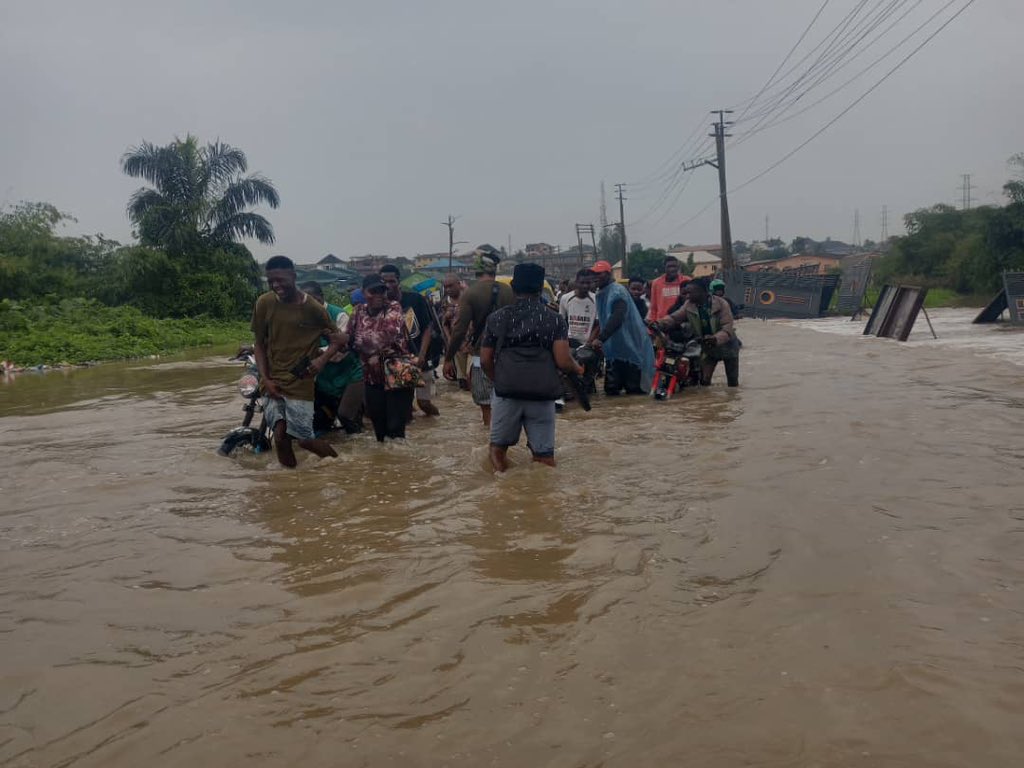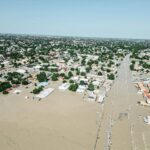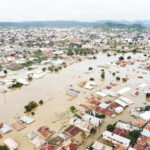It has become a ritual tradition that, close to the rainy season, the federal government, through respective authorities, issues alert warnings to state governments and residents about impending floods in vulnerable areas.
These alerts and predictions aim to prompt appropriate proactive measures to mitigate the menace of this human-induced and natural form of disaster bedeviling our environments. During the 2024 Annual Flood Outlook, the Nigerian Hydrological Services Agency (NIHSA) predicted that 31 states with 148 local government areas (LGAs) are within high flood risk areas.
Additionally, 35 states, including the FCT, with 249 LGAs, are considered to fall within moderate flood risk areas. The remaining 377 LGAs are forecasted for low flood risk areas. The Nigeria Meteorological Agency (NiMet) and the NIHSA predicted that floods in high-risk areas will occur between April and November.
Nigeria has faced the recurring challenge of flooding, particularly during the rainy season. The impact of these floods has been devastating, affecting lives, properties, and the economy. The most devastating of all these floods was in 2012, when countless lives were lost and many properties destroyed.
- NAF kills scores of terrorists in Kaduna
- Barau’s foundation opens applications for postgraduate foreign scholarships in AI
Flooding in Nigeria is a multifaceted issue, driven by both natural and human-induced factors. The primary natural cause is heavy rainfall, which overwhelms the drainage systems in many urban areas.
Human activities exacerbate these natural causes. Urbanization, with inadequate planning and poor drainage systems, contribute significantly to the problem. Many cities have outdated or poorly maintained drainage systems, which are often clogged with waste, preventing the efficient flow of water.
Deforestation and land degradation also play crucial roles, reducing the land’s ability to absorb water, leading to surface runoffs that cause floods.
In response to these threats, NEMA has been implementing a comprehensive strategy to mitigate the impact of floods.
A key component of this strategy is the enhancement of early warning systems. NEMA leverages advanced technologies and real-time data to provide timely alerts to vulnerable communities.
NEMA works closely with state emergency management agencies, local governments, and international partners to ensure a unified and effective response.
Reducing the occurrence of floods also involves improving urban drainage infrastructure. NEMA advocates for the desilting of drainage systems, the construction of flood barriers, and the incorporation of flood-resistant designs in urban planning.
These measures, combined with strict enforcement of environmental regulations, can significantly reduce the risk of flooding.
Adequate funding and political will are essential for the successful implementation of these infrastructure projects.
Furthermore, investment in technology plays a crucial role in disaster mitigation. Real-time monitoring and predictive analytics can enhance early warning systems, allowing for more accurate predictions and timely interventions.
Community engagement is also essential for the success of flood mitigation strategies. Active participation from residents in maintaining and protecting their local environment can make a significant difference. Regular community clean-up activities, proper waste disposal practices, and adherence to environmental guidelines are simple yet effective measures that can prevent blockages in drainage systems and reduce flood risks.
In addition to immediate responses, long-term solutions are necessary to address the root causes of flooding. Afforestation and reforestation initiatives can help restore natural landscapes and improve the land’s ability to absorb water. Implementing sustainable agricultural practices can also reduce soil erosion and enhance water retention.
Through proactive measures, community engagement and sustainable practices, Nigeria can build a more resilient future, ready to face the challenges of climate change and environmental disasters. The nation stands united, determined to safeguard lives and livelihoods from the relentless threat of flooding.
Abdulhamid Abdullahi Aliyu, a youth corps member with the Centre for Crisis Communication, can be reached via [email protected]

 Join Daily Trust WhatsApp Community For Quick Access To News and Happenings Around You.
Join Daily Trust WhatsApp Community For Quick Access To News and Happenings Around You.

